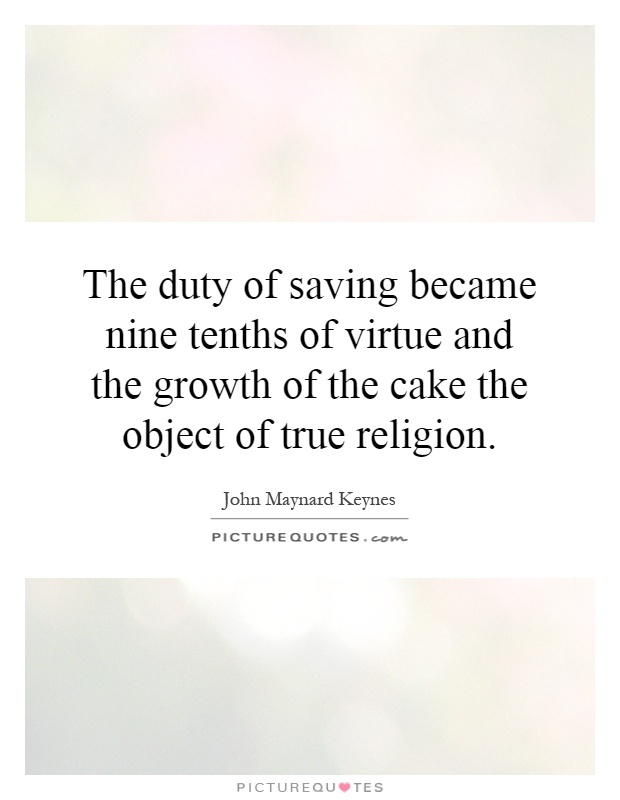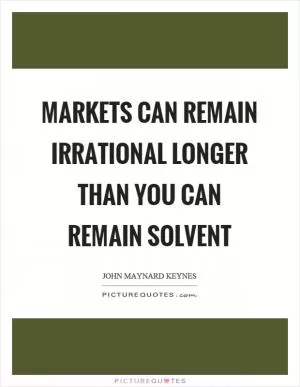The duty of saving became nine tenths of virtue and the growth of the cake the object of true religion

The duty of saving became nine tenths of virtue and the growth of the cake the object of true religion
In the context of John Maynard Keynes, the quote "The duty of saving became nine tenths of virtue and the growth of the cake the object of true religion" holds significant meaning. Keynes was a renowned economist whose theories revolutionized the way we understand and approach economic policy. He believed in the importance of government intervention in times of economic crisis and the need for active fiscal policy to stimulate growth and employment.Keynes' quote reflects his belief that saving alone is not enough to drive economic growth. While saving is important for individuals and households to secure their financial future, excessive saving can actually hinder economic growth. Keynes argued that in times of economic downturn, it is crucial for governments to step in and stimulate demand through increased spending and investment. This is because when individuals and businesses are not spending, the economy can stagnate, leading to high unemployment and low growth.
Keynes believed that the key to economic prosperity lies in the growth of the "cake," or the overall size of the economy. By focusing on increasing the size of the cake through government intervention and policies that promote growth, Keynes believed that societies could achieve higher levels of prosperity and well-being for all. This is where the idea of the growth of the cake becoming the object of true religion comes into play. Keynes believed that the ultimate goal of economic policy should be to ensure that the economy is growing and that all members of society are benefiting from this growth.












 Friendship Quotes
Friendship Quotes Love Quotes
Love Quotes Life Quotes
Life Quotes Funny Quotes
Funny Quotes Motivational Quotes
Motivational Quotes Inspirational Quotes
Inspirational Quotes